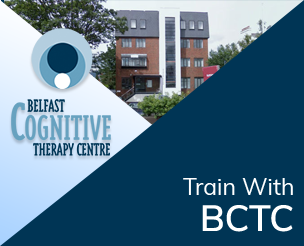
During the ‘’Troubles’ we went out to a Victim group to talk. Most had had a family member murdered and all lived in politically traumatised and disadvantaged areas. We asked what symptoms they had noticed. Most reported that they had few or none – apart from ‘nerves’ for which they were largely prescribed benzodiazepines. In addition, they reported many minor physical illnesses (known to be a trauma symptom in itself). When we later assessed them for trauma symptoms however, we found that the results were in the very severe range. To me it seemed that trauma symptoms became more evident after the ‘Troubles’. Lets take a look at what our responses to trauma are:
First, what exactly is a trauma?
Trauma is an event which is so terrifying as to overwhelming, such as being in a very serious car accident, being raped, being abused or being seriously assaulted.
The following symptoms are prominent in PTSD:
- Your body hasn’t been able to relax after the trauma e.g.
- Difficulty falling asleep and staying asleep
- Irritability and outbursts of anger
- Difficulty concentrating and remembering
- Being overly aware of your own or other person’s safety
- Finding yourself ‘jumping’ at the least thing
- A lot of anxiety – even panic – when you come into contact with anything or anyone that reminds you of the trauma
- Re-living the trauma e.g.
- Confused dreams/nightmares
- Feeling an awful lot of distress when you remember the trauma
- Distressing thoughts or memories about the trauma
- Sudden feeling of the trauma happening again/ flashbacks i.e. ‘pictures’ in your head causing you to feel as if the traumatic experience is recurring.
- Feeling you need to avoid distressing memories of the trauma or any distress connected with it e.g.
- Attempts to avoid distressing feelings/thoughts connected with the trauma.
- Avoiding situations or activities which remind us of the incident
- Finding that we have little or no memory of the trauma (or parts of it)
- Not as much interest in things we used to be interested in.
- Feelings of unreality e.g. feeling detached
- Not being able to feel many emotions e.g. sadness, anger, love, distress
- Sense of doom e.g. thinking something awful may happen or that our future plans or hopes have changed because of the trauma
- Our thoughts also change – often from balanced and rational to irrational.
Example: Before an accident we tend to think ‘Although accidents occur, driving is pretty safe overall’. After an accident we may begin to think ‘Driving is totally unsafe – if I go out on the road I’m going to have another accident and get seriously hurt or worse’. This type of thinking is known as catastrophic thinking (think of a catastrophe where we think that the very worst will happen). It increases our anxiety and may result in panic attacks.
Next Month: Now that we understand what PTSD is how we work with it?
Anne Kelly is a psychologist and CBT therapist. She has trained several hundred CBT therapists to professional level. If you have an anxiety you can email her on anne.kelly@belfastctcentre.com


